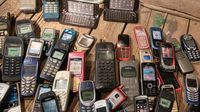Spain experienced one of the most severe blackouts in its recent history on Monday, April 28, 2025, starting at 12:30 PM, which left millions without electricity and disrupted telecommunications, transportation, and public services across the Iberian Peninsula. The sudden loss of 15 gigawatts of electrical power—representing 60% of the country's total demand—caused a cascading failure across various sectors, impacting companies like Telefónica, Orange, Vodafone, and Digi.
As the blackout unfolded, users reported widespread outages affecting internet connections, mobile networks, and messaging platforms like WhatsApp. By 3:00 PM, many users across these telecommunications networks were unable to make calls or access data. The chaos was evident as the Downdetector website showed that outages were affecting all major companies, leading to panic among citizens trying to connect.
David Martínez, a spokesperson for Orange, acknowledged the crisis, stating, "We do not yet know the extent of these outages. We know not all customers have been affected, but we cannot determine the total number of those impacted." Meanwhile, Vodafone reported that it managed to keep 70% of its network operational thanks to backup systems, but warned that this capacity was contingent on the duration of the power outage.
Telefónica activated its crisis committee, prioritizing essential services to maintain operations. The company stated, "We are working as planned and established, rationalizing resource use to remain operational for as long as possible and prioritizing essential services." This was a crucial step as the telecommunications infrastructure heavily relies on a stable power supply to keep antennas and data centers functioning.
Traffic lights were also rendered inoperative, leading to significant disruptions in major cities and increasing the risk of accidents. The Madrid Metro was forced to evacuate passengers for safety reasons, while airports managed to maintain operations through contingency electrical systems, though delays were expected due to mobility issues among passengers and crews.
By 6:00 PM, some areas began to recover their electrical service, leading to a gradual stabilization of telecommunications. However, many users continued to experience difficulties with their mobile networks. Reports indicated that as late as 8:22 AM on Tuesday, April 29, 2025, many telecommunications companies were still facing incidents, according to Downdetector.
President Pedro Sánchez addressed the nation following an emergency meeting of the National Security Council, requesting that citizens refrain from making non-essential calls to avoid overwhelming the already strained networks. He explained that the blackout was caused by a "strong oscillation in the European electrical system," leading to the widespread disruption of supply. He urged the public to avoid speculation about the causes of this incident, emphasizing that "no hypothesis can be ruled out" but that it was essential to rely on official information.
Despite the confusion, some experts suggested a possible cyberattack as a contributing factor, noting that the Spanish electrical grid faces approximately 1,000 hacking attempts daily, all of which are blocked by security systems. Others pointed to unusual atmospheric phenomena that could have caused the electrical failure, such as extreme temperature changes affecting high-voltage lines.
As the situation unfolded, telecommunications companies implemented contingency plans. Vodafone's crisis committee monitored the incident closely, ensuring that critical infrastructure was maintained and providing support to customers. They warned users to minimize data usage and make responsible use of their mobile devices to prevent further strain on the network.
Throughout the day, thousands of businesses were impacted by the loss of connectivity, as teleworking platforms, corporate messaging applications, and digital payment systems became inoperative. Users took to social media to express their frustration, with many resorting to alternative Wi-Fi connections or data services that remained functional.
By the evening, Vodafone reported it had recovered 60% of mobile traffic and 50% of its active nodes, showing signs of improvement as the electrical supply was restored in various regions. However, the company cautioned that the recovery process would take time, with many areas still lacking stable service.
As of Tuesday morning, the recovery continued, but full restoration of services was expected to take several hours or even days in the most affected locations. Authorities advised the public to remain calm, limit the use of electronic devices, and follow official recommendations to ensure safety.
This massive blackout and its cascading effects on telecommunications highlight a critical vulnerability in Spain's infrastructure. Experts have called for an urgent review of backup systems in both the energy and communications sectors to prevent similar occurrences in the future. As Spain navigates the aftermath of this unprecedented event, the focus will be on restoring normalcy while addressing the underlying issues that led to such a widespread failure.






